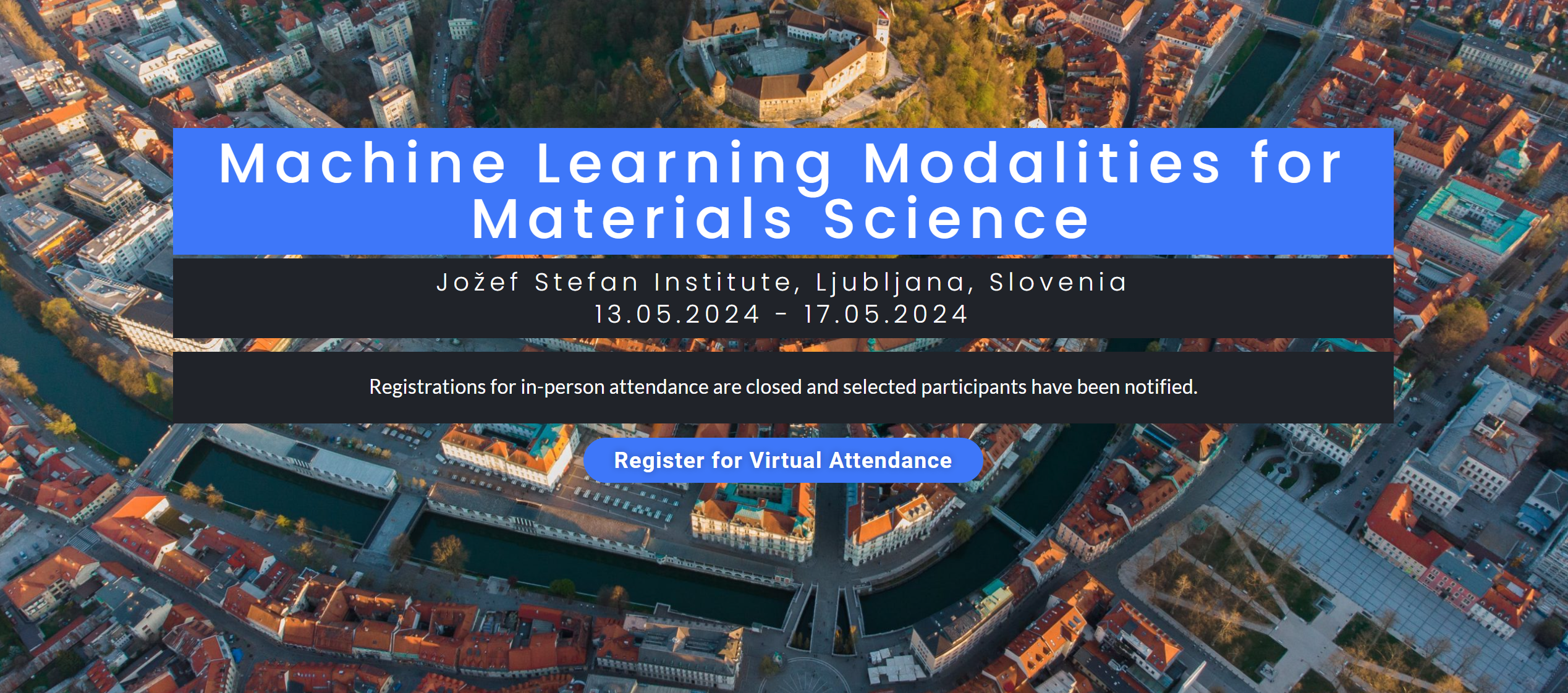Machine Learning Modalities for Materials Science
When: 13–17 May 2024
Where: Jožef Stefan Institute, Ljubljana, Slovenia
Organisers:
Sašo Džeroski, Jožef Stefan Institute, SI
Stefano de Gironcoli, SISSA, IT
Patrick Rinke, Aalto University, FI
Kevin Rossi, TU Delft, NL
Sintija Stevanoska, Jožef Stefan Institute, SI
Milica Todorovic, University of Turku, FI
the DAEMON COST Action CA22154 acts as a co-organizer of the event.
COST (European Cooperation in Science and Technology) is a funding agency for research and innovation networks. Our Actions help connect research initiatives across Europe and enable scientists to grow their ideas by sharing them with their peers. This boosts their research, career and innovation. www.cost.eu
Webpage: https://ml4ms.ijs.si/

